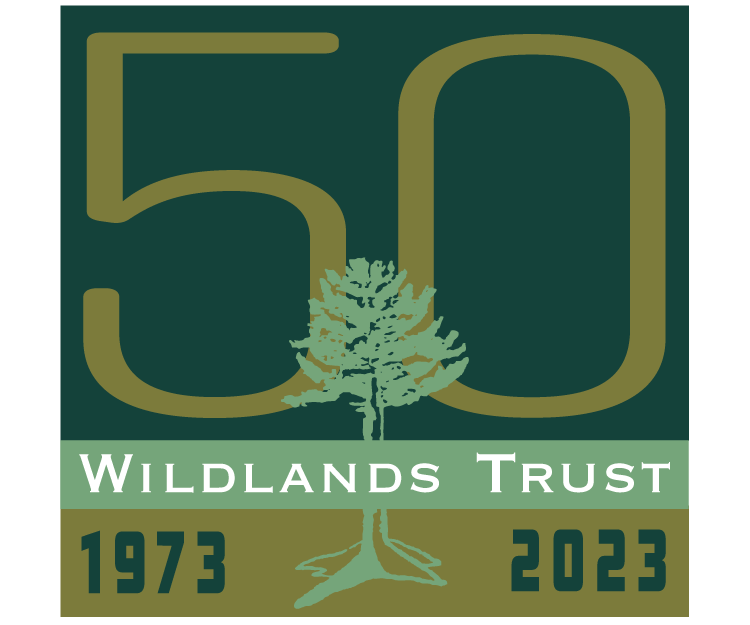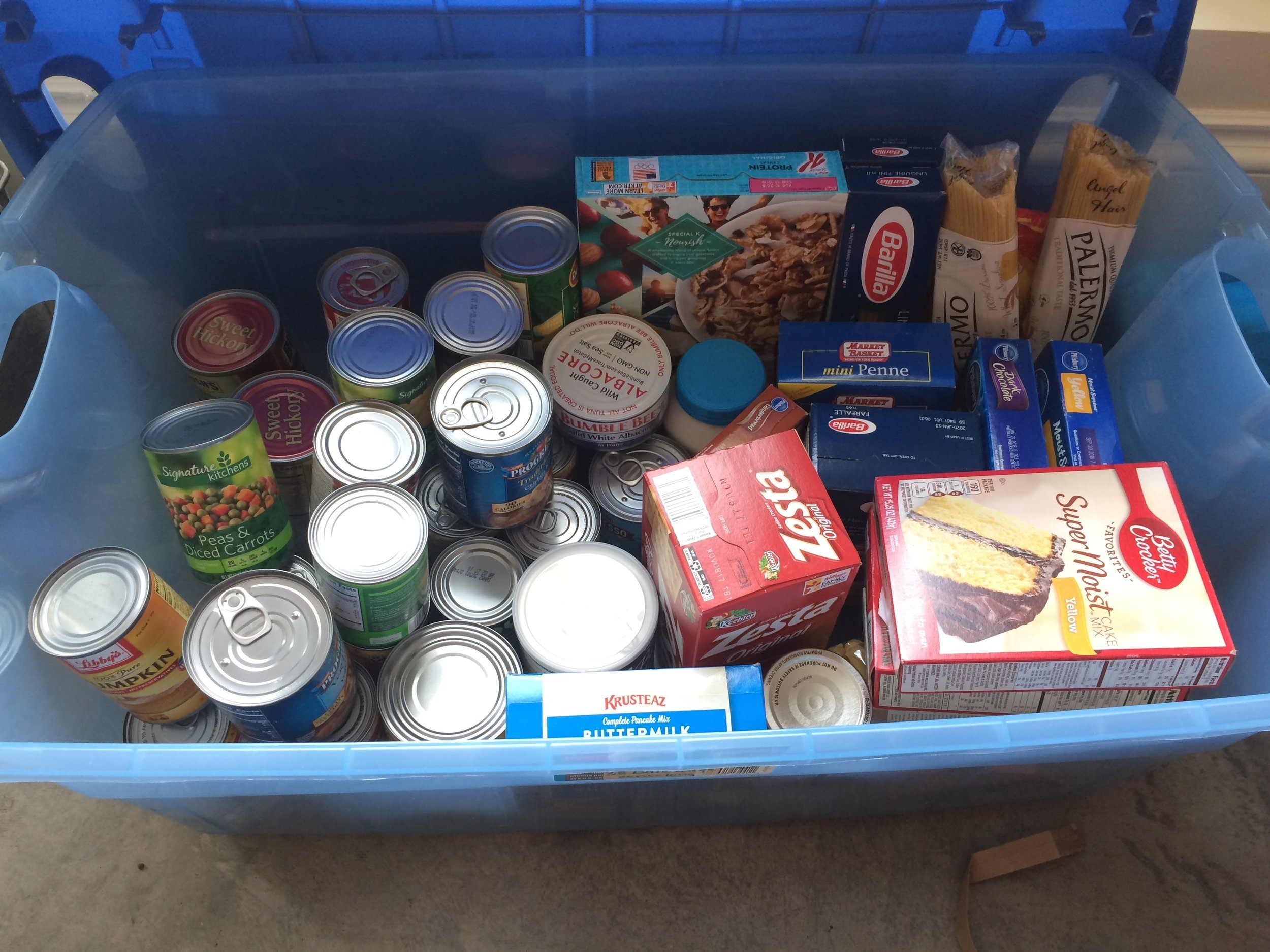As we ring in the new year, we would like to thank you for the conservation successes you’ve made possible in 2017.
Overlooking Great South Pond atop Pinnacle Hill at Luigi and Teotista Cortelli Preserve
Photo by Jerry Monkman
This past year, Wildlands Trust was able to add 450 acres to our protected lands portfolio, land that we will conserve and protect in perpetuity. At the very beginning of 2017, we announced the largest single acquisition in Wildlands’ 44-year history thanks to the generosity and enduring conservation ethic of donors Gerald and Maureen Sheehan. The 275-acre Luigi and Teotista Cortelli Preserve on Great South Pond in Plymouth contains globally rare habitats and is a critical link in a 19,000-acre corridor of contiguous open space in Southeastern Massachusetts. Throughout 2017, our land stewardship staff and various volunteer crews constructed a trail system at this preserve that links the Plymouth Town Forest with Myles Standish State Forest. We led a number of public hikes last year highlighting this corridor, including the two-part, 20-mile Big Ramble in June and a 6-mile hike around Great South Pond in September.
In Bridgewater, Wildlands Trust collaborated with the Mass. Deparment of Fish and Game to save an additional 62 acres along the Taunton River, expanding our Great River Preserve and the larger Taunton River Wildlife Management Area, which now encompasses a total of 570 acres. With a generous memorial gift in honor of Mark Kaetzer, our stewardship staff and volunteers began working on improvements at the entrance of Great River Preserve. We completed the new memorial gate and bench at the end of 2017, and in 2018, we will build a new handicapped parking area and a barrier free trail to provide access to the Taunton River for all people.
Stewardship volunteers and staff worked together to complete the new memorial gate at the entrance of Great River Preserve on Auburn St. in Bridgewater. Photo by Rob MacDonald.
In addition to these standout stewardship projects, our staff and volunteers completed countless improvements to Wildlands Trust trail systems across our region. In Wareham, we reestablished the trail system at Great Neck Preserve and in a collaborative effort to install a network of trails in the Mark’s Cove area, we added two miles of trails and water crossings at our Gleason Family Preserve. The trail systems of Six Ponds Preserve and Emery West Preserve, part of the Davis-Douglas Farm Conservation Area, were extended and improved for public access over a number of volunteer workdays. A new trail map for Davis-Douglas Farm is in the works.
Our new Community Stewardship Program continued to assist municipalities in our service area with trail design, construction, and mapping, grant attainment, networking, and outreach. In Brockton, we are working on the restoration of 2.4 miles of trails in the city’s 104-acre Stone Farm Conservation Area began. Once complete, this trail system will connect to Wildlands Trust’s Brockton Audubon Preserve, providing miles of hiking trails within the city. Our CSP staff are also spearheading outreach efforts for the Greening the Gateway Cities Program in Brockton, which seeks to plant 2,400 trees in the city at no cost to landowners in an effort to increase shade and reduce household energy costs by 5 to 10 percent.
The Community Conservation Barn was open for its first full year at our new headquarters at Davis-Douglas Farm in Plymouth. We offered over 70 public programs in the Barn and 126 public programs overall, attracting 1,500 people to participate in the Wildlands Trust mission through hikes, wellness workshops, presentations, trainings, meetings, and more. The new Barn and beautiful 10-acre grounds at Davis-Douglas Farm also allowed us to host our first ever OkTRAILberfest celebration in October. OkTRAILberfest attracted over 200 people and raised $11,000 for our Youth Unplugged Initiative, providing outdoor opportunities for youth of all ages.
The 2017 Green Team middle school age group volunteers at Bay Farm in Bourne
Youth Unplugged saw a boost in 2017 with the growth of both the Envirothon and Green Team programs. In addition to sponsoring and coaching the Brockton High School Envirothon team for our third consecutive year, we assisted in starting a new Envirothon team at Plymouth South High School. The summer Green Team grew from a small-group high school internship to include both middle and high school age groups in 2017, expanding our capacity to engage local youth in meaningful environmental learning and volunteerism.
Fundraising was strong in 2017 thanks to the generosity of our 1,400 members. Most notable was your commitment to land protection and the funding needed to make it happen. This fiscal year, our members contributed nearly $600,000 to help purchase and steward land, the foundation of our mission.
As we reflect on these successes, we are also aware that there are many challenges to conserving land in the age of intensive development pressures, shifting community needs and fiscal priorities, and unprecedented reliance on our technological devices. Our mission to conserve and permanently protect the native habitats, farmlands, and ecologically valuable and scenic landscapes of Southeastern Massachusetts feels more important than ever. 2017 was a strong year for local land conservation, but there is important work ahead in 2018 and beyond.
At Wildlands Trust, we envision a future where open land is abundant, our water is clean, and forests, farms, wetlands, fields, ponds, and coastal areas are commonplace sightings on our landscape. Thank you for sharing this vision and supporting our efforts. Together, we unlock the potential to protect even more land for the public benefit year after year. If you are not a member, please consider joining today to help us kick off 2018!







